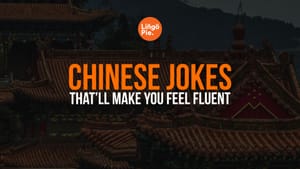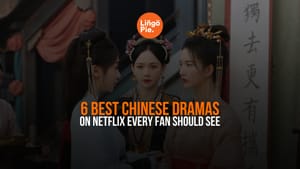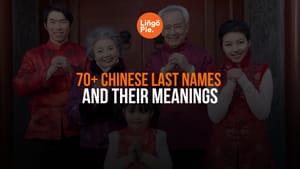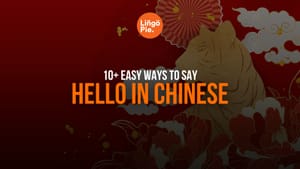If you’ve ever wondered how people express love in Chinese, the Qixi Festival is the perfect place to start. Often called Chinese Valentine’s Day, this romantic holiday is rooted in a legendary love story that still touches hearts today.
In this guide, you’ll learn the meaning behind Qixi, how it’s celebrated in modern China, and key Chinese vocabulary related to romance and relationships. Whether you're studying Chinese or love a good Chinese story, Qixi offers a beautiful way to explore language through culture.
- 9 Chinese Jokes That Made Me Feel Fluent In Chinese
- 6 Best Chinese Dramas On Netflix Every Fan Should See
- 70+ Common Chinese Last Names And Their Meanings

What is the Qixi Festival?
Qixi Festival (七夕节 Qīxì Jié) is often called Chinese Valentine’s Day, and it's known to honor the romantic legend of Niulang (the Cowherd) and Zhinü (the Weaver Girl). It takes place on the seventh day of the seventh lunar month and has been observed in China for over 2,000 years.
While it’s not a public holiday, couples still celebrate it through romantic dates, small gifts, handwritten messages, and sometimes stargazing. The holiday combines traditional folklore with modern expressions of love, making it both culturally rich and emotionally meaningful.
- Dates back to the Han Dynasty (206 BC–220 AD)
- Zhinü is a weaver goddess, so the festival is also linked to craftsmanship and devotion
- In the past, young women prayed for wisdom and skill in needlework during the festival
The Origin Story Of Qixi Festival
The Qixi Festival is a love story that’s been passed down for centuries. It tells the tale of Niulang (牛郎), a poor but kind cowherd, and Zhinü (织女), a beautiful and talented weaver girl who was a goddess and the seventh daughter of the Jade Emperor.
One day, Zhinü came down from heaven and met Niulang. The two fell deeply in love and decided to marry, living happily together on Earth. But because Zhinü was a celestial being, their marriage was forbidden. When the Jade Emperor discovered what had happened, he ordered her to return to the heavens.
Heartbroken, Niulang tried to follow her. His loyal ox, once a heavenly being, told him to use its hide to fly into the sky. Niulang did just that, carrying their two children in baskets. But just as he was about to reach Zhinü, the Queen Mother of the West created a river of stars, or the Milky Way (银河 Yínhé), to keep them apart.
Moved by their devotion, magpies formed a bridge across the stars once a year, allowing the lovers to meet on the seventh day of the seventh lunar month. This reunion is what Qixi celebrates: love that is strong, faithful, and patient even when the universe tries to keep it apart.
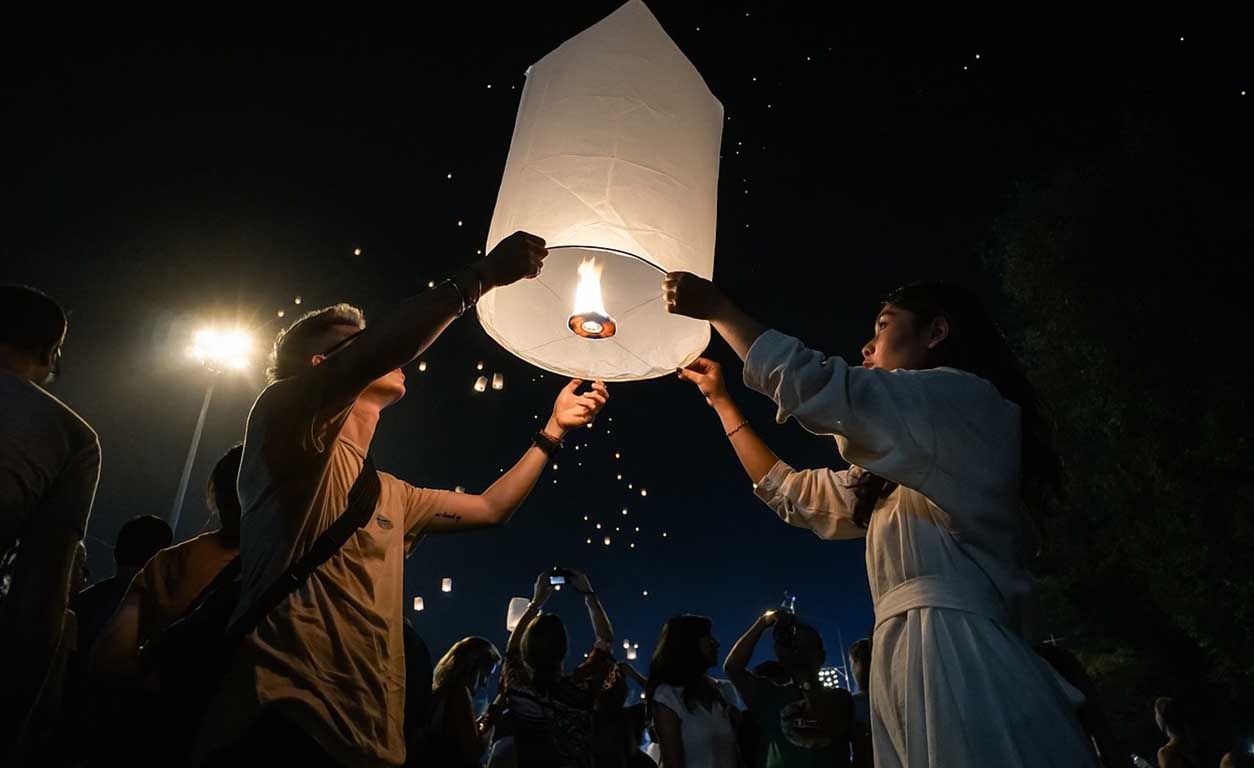
How Is The Qixi Festival Celebrated?
One of the most iconic customs of the Qixi Festival was the worship of the Weaving Maid, Zhinü. Traditionally, young women would gather to offer fruits, melons, and other delicacies to Zhinü, praying for wisdom and skills, especially in sewing and weaving. They often participated in needlework competitions, showcasing their embroidery skills as symbols of grace and talent.
Special foods are also an integral part of the Qixi Festival. One traditional snack is Qiao Guo, a crispy, sweet pastry shaped in various shapes.
However, the Qixi Festival has evolved over time, blending traditional practices with modern influences. Similar to Western Valentine's Day, it has become a commercial holiday, with businesses promoting special sales and events.
Although Qixi has roots stretching back two thousand years, the way people mark the day now is different.
Modern Romance and Gifts
Couples treat Qixi much like Western Valentine’s Day.
- Dinner dates at stylish restaurants usually book up early, with set menus titled “Magpie Bridge” or “Star-Crossed Lovers.”
- Gifts such as roses, perfumes, chocolates, or matching jewelry are common. Many brands launch limited “Qixi” collections or online flash sales to tempt shoppers.
- Photo spots pop up in shopping malls, featuring bridges of lights or oversized magpie sculptures so pairs can snap a keepsake picture.
Stargazing and Wishes
After dark, many people look up at the summer sky.
- The two brightest stars on opposite sides of the Milky Way, Vega (織女星 Zhīnǚ xīng) and Altair (牛郎星 Niúláng xīng), represent the separated lovers.
- Friends or couples may make a small wish for lasting affection or future marriage while spotting the stars.
- Some parks and rooftop bars host themed “Star Walk” events with telescopes and storytelling sessions.
Public Events and Decorations
Cities give Qixi its own festive vibe.
- Craft fairs and temple markets sell handmade embroidery, fan art, and calligraphy featuring the lovers’ story.
- Lantern displays or light shows in riverside parks create a romantic backdrop for evening strolls.
- Community centers sometimes run needlework or weaving workshops, nodding to Zhinü’s role as the celestial weaver.

Vocabulary Related To The Qixi Festival
Learning a few key Chinese words tied to Qixi can help you understand the deeper meaning behind the celebration and impress native speakers too. Here are the most useful terms to know:
Festival and Story Terms
At the heart of the Qixi Festival is a love story written in the stars—literally. These words relate to the origin legend of the Cowherd and the Weaver Girl, celestial lovers separated by the Milky Way who reunite once a year. Learning these terms helps you understand both the folklore and the emotional meaning behind the holiday.
| Chinese | Pinyin | English Meaning |
|---|---|---|
| 七夕节 | Qīxì Jié | Qixi Festival |
| 牛郎 | Niúláng | Cowherd (male lover) |
| 织女 | Zhīnǚ | Weaver Girl (female lover) |
| 银河 | Yínhé | Milky Way |
| 鹊桥 | Quèqiáo | Magpie Bridge |
| 相会 | Xiānghuì | Reunion |
| 爱情 | Àiqíng | Romantic love |
| 恋人 | Liànrén | Lovers |
| 传说 | Chuánshuō | Legend or folktale |
| 星星 | Xīngxing | Star |
| 分离 | Fēnlí | Separation |
| 重逢 | Chóngféng | To reunite |
| 悲伤 | Bēishāng | Sadness |
| 祝福 | Zhùfú | Blessing |
| 童话 | Tónghuà | Fairy tale |
Romance and Celebration Vocabulary
These are the everyday words you'll see or hear when Qixi rolls around—especially in cities. From shopping sites to social media, these phrases capture how modern Chinese couples celebrate: with gifts, dates, and sweet gestures. They’re useful for describing how Qixi feels today, especially in casual conversations.
| Chinese | Pinyin | English Meaning |
|---|---|---|
| 情人节 | Qíngrén Jié | Valentine's Day |
| 礼物 | Lǐwù | Gift or present |
| 约会 | Yuēhuì | Romantic date |
| 告白 | Gàobái | Love confession |
| 爱你 | Ài nǐ | Love you |
| 我爱你 | Wǒ ài nǐ | I love you |
| 花 | Huā | Flower |
| 鲜花 | Xiānhuā | Fresh flowers |
| 浪漫 | Làngmàn | Romantic |
| 情书 | Qíngshū | Love letter |
| 心 | Xīn | Heart |
| 拥抱 | Yōngbào | Hug |
| 亲吻 | Qīnwěn | Kiss |
| 甜蜜 | Tiánmì | Sweet (emotionally) |
| 纪念日 | Jìniànrì | Anniversary |
Traditional Symbols and Activities
While many people today focus on gifts and dinner dates, the Qixi Festival has a long history of hands-on rituals. In the past, young women gathered to showcase their embroidery, pray for wisdom in love, and enjoy homemade snacks. These words are rooted in those customs and are often seen in cultural exhibits or regional celebrations.
| Chinese | Pinyin | English Meaning |
|---|---|---|
| 巧果 | Qiǎoguǒ | Qixi pastry |
| 乞巧 | Qǐqiǎo | Pray for skill |
| 女红 | Nǚgōng | Traditional women's crafts |
| 刺绣 | Cìxiù | Embroidery |
| 针线 | Zhēnxiàn | Needle and thread |
| 月老 | Yuèlǎo | God of matchmaking |
| 缝纫 | Féngrèn | Sewing |
| 手工 | Shǒugōng | Handmade |
| 手工艺 | Shǒugōngyì | Handicraft |
| 织布 | Zhībù | Weaving cloth |
| 许愿 | Xǔyuàn | Make a wish |
| 女子 | Nǚzǐ | Young woman |
| 手艺 | Shǒuyì | Craftsmanship |
| 技巧 | Jìqiǎo | Skill |
| 灯笼 | Dēnglóng | Lantern |
Qixi Greetings
Unlike Lunar New Year’s universal “新年快乐,” Qixi Festival doesn’t have one fixed catch-phrase. Instead, people borrow the structure of other holiday wishes—adding 快乐 (kuài lè, happy) or 祝 (zhù, wish)—and weave in romantic blessings. Couples exchange these phrases in texts and social-media posts, while brands print them on gift boxes and café boards.
Below are fifteen common ways to greet someone on Qixi. Pick the short, casual lines for friends or partners and the longer blessings for cards, captions, or formal well-wishes.
| Chinese Phrase | Pinyin | Natural English Meaning |
|---|---|---|
| 七夕快乐 | Qīxī kuài lè | Happy Qixi |
| 七夕节快乐 | Qīxī jié kuài lè | Happy Qixi Festival |
| 情人节快乐 | Qíngrén jié kuài lè | Happy Valentine’s Day (used for Qixi) |
| 七夕安康 | Qīxī ān kāng | Wishing you health and peace on Qixi |
| 爱在七夕 | Ài zài Qīxī | Love on Qixi |
| 七夕幸福 | Qīxī xìngfú | Wishing you Qixi happiness |
| 牛郎织女情久长 | Niúláng Zhīnǚ qíng jiǔ cháng | May your love last like the Cowherd and Weaver Girl |
| 愿天下有情人终成眷属 | Yuàn tiānxià yǒuqíngrén zhōng chéng juànshǔ | May all lovers find their happy ending |
| 七夕快乐,甜蜜相伴 | Qīxī kuài lè, tiánmì xiāngbàn | Happy Qixi, may sweetness stay with you |
| 七夕快乐,幸福常在 | Qīxī kuài lè, xìngfú cháng zài | Happy Qixi, may happiness always be with you |
| 七夕快乐,永结同心 | Qīxī kuài lè, yǒng jié tóngxīn | Happy Qixi, may your hearts be forever joined |
| 七夕快乐,白头偕老 | Qīxī kuài lè, báitóu xiélǎo | Happy Qixi, may you grow old together |
| 七夕快乐,心心相印 | Qīxī kuài lè, xīnxīn xiāng yìn | Happy Qixi, may your hearts beat as one |
| 愿你们的爱情像银河一样闪耀 | Yuàn nǐmen de àiqíng xiàng Yínhé yíyàng shǎnyào | May your love shine like the Milky Way |
| 祝七夕快乐,爱情美满 | Zhù Qīxī kuài lè, àiqíng měimǎn | Wishing you a joyful Qixi and perfect love |
Use these greetings in a voice message, a WeChat sticker, or on a gift tag, and you’ll sound both festive and culturally aware.
Difference Between Qixi Festival and Traditional Valentine's Day
At first glance, Qixi Festival and Valentine’s Day might seem similar—they both celebrate romantic love, and couples often exchange gifts and sweet messages. But their origins, timing, and cultural feel are quite different.
Here’s a quick side-by-side comparison to help you understand how the two stack up:
| Feature | Qixi Festival (七夕节) | Traditional Valentine’s Day |
|---|---|---|
| Date | 7th day of the 7th lunar month (usually August) | February 14 |
| Origin | Chinese legend of Niulang and Zhinü (Cowherd & Weaver Girl) | Christian martyr Saint Valentine |
| Theme | Eternal love, fate, loyalty across distance | Romance, affection, and modern love |
| Celebration Style | Poetic, sentimental, traditional crafts, stargazing | Romantic dinners, gifts, flowers, cards |
| Common Gifts | Handwritten notes, Qiao Guo (fried pastry), small presents | Chocolates, roses, jewelry, stuffed toys |
| Cultural Focus | Emotion, story, tradition, quiet moments | Commercial romance, big gestures |
| Where It’s Celebrated | China, Taiwan, parts of East and Southeast Asia | United States and worldwide |
| Modern Trends | Gaining popularity through online campaigns, shopping deals | Highly commercialized, widely advertised |
| Greeting Example | 七夕快乐!(Qīxī kuàilè – Happy Qixi!) | Happy Valentine’s Day! |
So while both holidays celebrate love, Qixi leans toward timeless, story-driven romance with cultural depth, while Valentine’s Day is all about grand displays and global participation. Depending on where you are—or who you're with—you might just get to celebrate both.
Final Thoughts
Understanding cultural celebrations can significantly impact our language learning experience. Experiencing a culture firsthand or through its traditions helps bridge the gap between abstract language concepts and practical, everyday use.
For those eager to deepen their knowledge of Chinese, platforms like Lingopie leverage the power of language learning through engaging content such as Chinese TV shows and movies. Consuming Chinese media can strengthen your listening skills, help you pick up new vocabulary, and allow you to experience the language as it is naturally spoken.
By learning about the different aspects of Chinese culture, you will elevate your communication skills to the next level. Embrace the journey and watch how it transforms your language-learning experience.
Frequently Asked Questions About Qixi Festival
1. Is The Qixi Festival A Public Holiday In China?
No, the Qixi Festival is not a public holiday in China. However, it is widely celebrated, and many people take the time to participate in festivities and express their love.
2. Can Non-Chinese People Celebrate The Qixi Festival?
Absolutely! The Qixi Festival is a beautiful celebration of love and offers an opportunity for people of all backgrounds to learn about and appreciate Chinese culture.
3. Are There Any Special Phrases Or Greetings For The Qixi Festival?
Yes, a common greeting is "七夕快乐" (Qīxī kuàilè), which means "Happy Qixi Festival." Other expressions include "愿天下有情人终成眷属" (Yuàn tiānxià yǒuqíngrén zhōng chéng juànshǔ), wishing that all lovers in the world will become a couple.


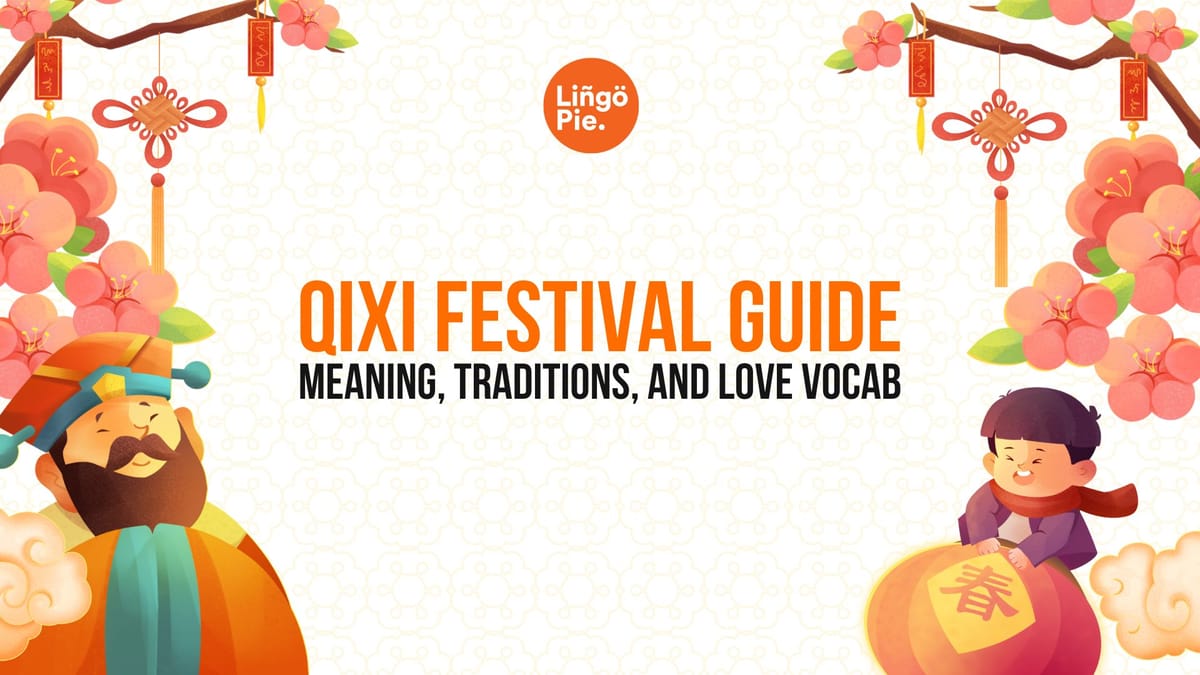


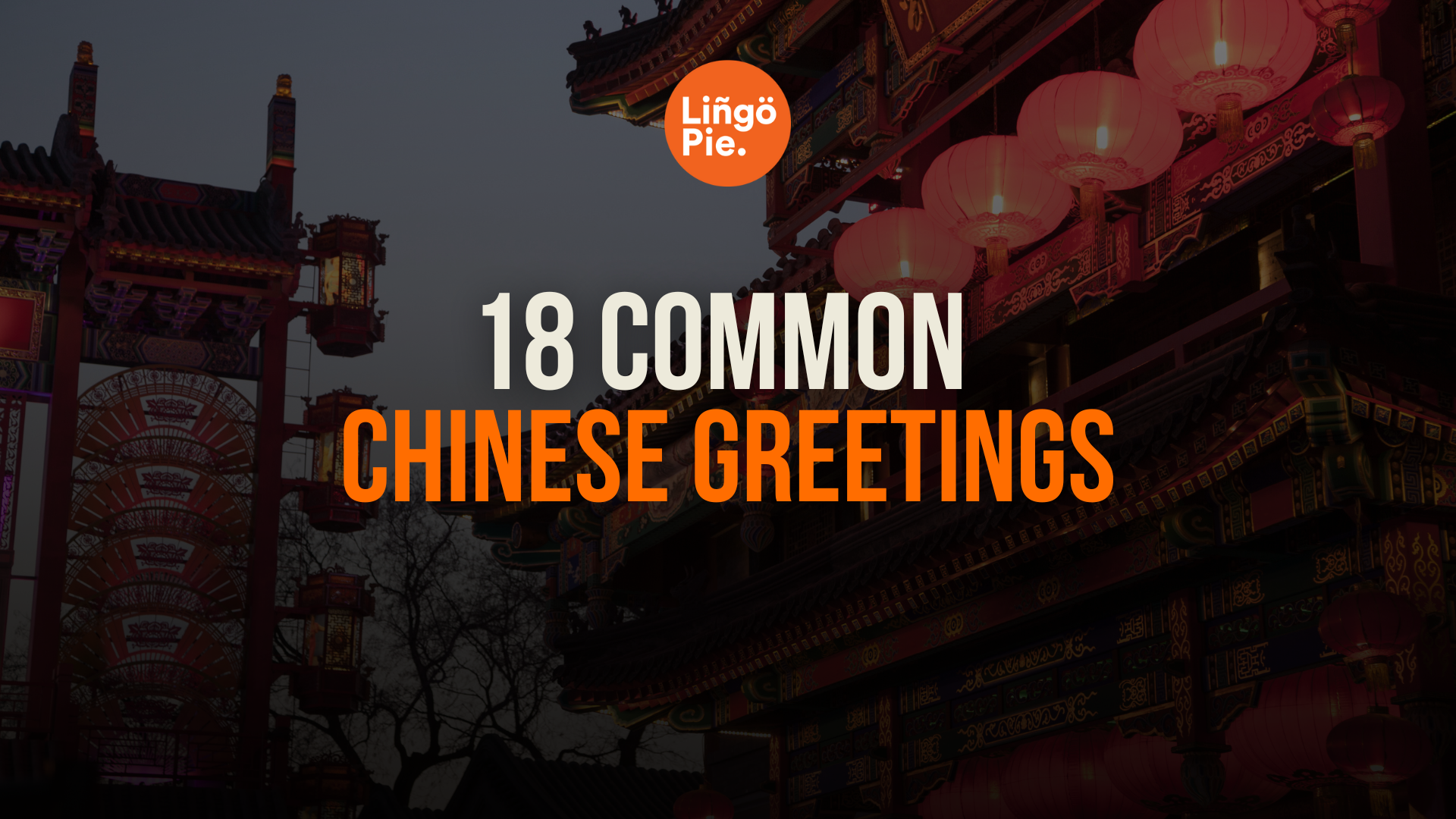
![5 Official Spanish Language Tests To Show Your Proficiency Level [Guide]](/blog/content/images/size/w1200/2025/06/Spanish-Language-Tests.jpg)
